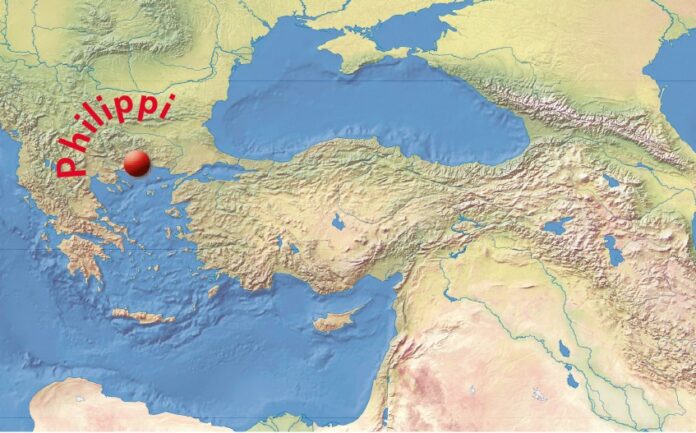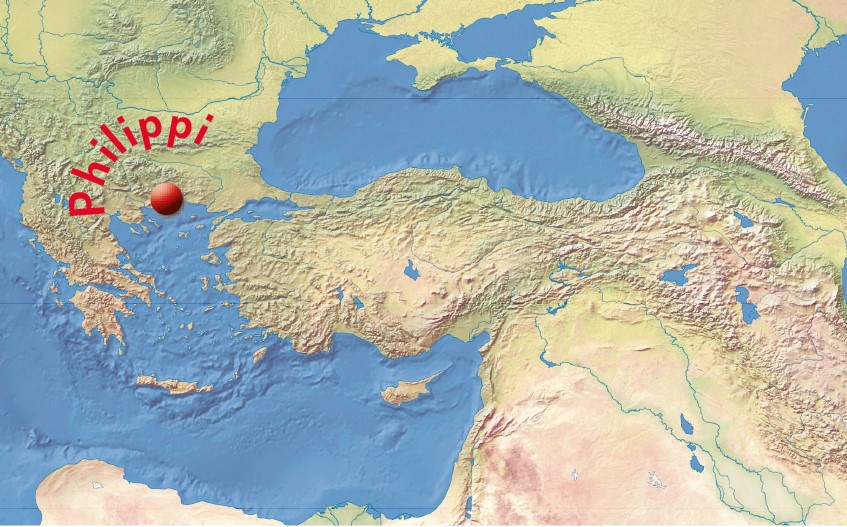PHILIPPI WAS A prosperous Roman colony in Thracia, at the northern end of the Aegean Sea. Here, the first congregation in Europe was established during Paul’s second missionary journey. Contrasting with the idea of a colony of Rome, the congregation of believers is seen as a ‘colony of heaven’, whose members are citizens of a heavenly kingdom (3:20).
Paul’s visit to Philippi and the establishment of the congregation there is related in Acts 16. He was imprisoned by the authorities. As he writes this letter he is in prison again, in Rome. Yet he rejoices that his imprisonment has worked out ‘to advance the gospel’ (Philippians 1:12–18)— he has been able to preach to his guards.
Unity in Christ
Paul urges his readers to be ‘standing firm in one spirit, with one mind striving side by side for the faith of the gospel’ (1:27). If they are united in fellowship they will be concerned for each other’s needs, imitating the example of Christ (2:1–5).
Though he was the Son of God, Jesus behaved as a servant and was ‘obedient to the point of death, even death on a cross’ (v. 8). As a result, ‘God has highly exalted him and bestowed on him the name that is above every name, so that at the name of Jesus every knee should bow’ (vs. 9–10).
Paul looks forward to the resurrection of the dead, which has been made possible by Christ’s sacrifice (3:10–12).
The Philippians are to follow the example of the Lord Jesus and of the apostles (2:22, 29; 3:17) and be examples to others (4:5). In a city where poverty and riches exist side by side, the letter reminds believers of the true riches of the Gospel (4:19).
Finally, brothers, whatever is true, whatever is honourable, whatever is just, whatever is pure, whatever is lovely, whatever is commendable, if there is any excellence, if there is anything worthy of praise, think about these things (Philippians 4:8).
Norman Owen
By kind permission of ‘The Christadelphian’
Some interesting links with other parts of the Bible:
- Philippians 2:9—see Acts 2:33; Hebrews 2:9.
- Philippians 3:14—see 2 Timothy 4:7–8.
- Philippians 3:20—see Acts 1:11, 3:20–21; 1 Thessalonians 4:16.



